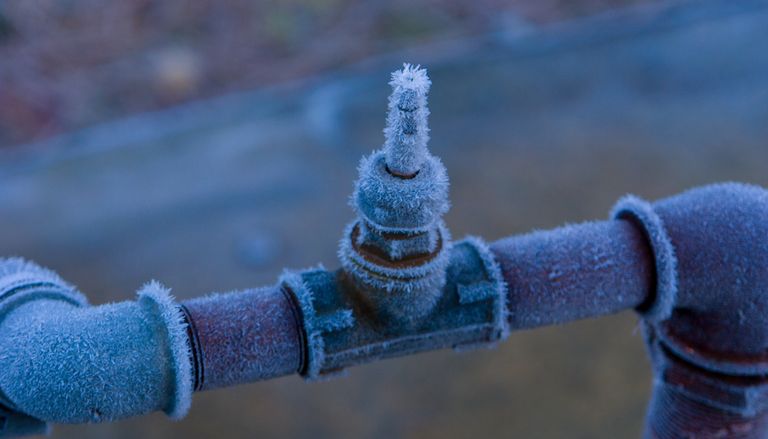Ways to Maintain Pipes from Cold Weather Issues: Crucial Advice
Ways to Maintain Pipes from Cold Weather Issues: Crucial Advice
Blog Article
We have stumbled on the article involving How to prepare your home plumbing for winter weather down the page on the internet and thought it made sense to write about it with you over here.

Cold weather can wreak havoc on your pipes, specifically by freezing pipelines. Right here's exactly how to stop it from taking place and what to do if it does.
Introduction
As temperature levels decline, the threat of icy pipelines rises, potentially resulting in pricey fixings and water damages. Recognizing how to avoid icy pipelines is crucial for property owners in chilly climates.
Comprehending Frozen Pipes
What triggers pipes to freeze?
Pipes freeze when exposed to temperatures below 32 ° F (0 ° C) for extended periods. As water inside the pipelines ices up, it broadens, putting pressure on the pipe wall surfaces and possibly triggering them to burst.
Risks and problems
Frozen pipes can bring about water disturbances, building damages, and expensive fixings. Burst pipelines can flood homes and create substantial structural damages.
Signs of Frozen Water Lines
Identifying icy pipelines early can avoid them from rupturing.
Exactly how to recognize icy pipelines
Look for decreased water flow from faucets, unusual smells or noises from pipes, and noticeable frost on exposed pipes.
Avoidance Tips
Insulating prone pipelines
Wrap pipes in insulation sleeves or utilize warmth tape to protect them from freezing temperatures. Focus on pipes in unheated or outside locations of the home.
Home heating strategies
Keep indoor rooms sufficiently heated, particularly areas with plumbing. Open up cabinet doors to enable cozy air to circulate around pipes under sinks.
Shielding Outdoor Plumbing
Yard pipes and outside faucets
Detach and drain garden tubes prior to winter season. Mount frost-proof faucets or cover outside faucets with shielded caps.
What to Do If Your Pipelines Freeze
Immediate actions to take
If you believe icy pipes, maintain faucets open up to eliminate pressure as the ice thaws. Use a hairdryer or towels taken in warm water to thaw pipelines slowly.
Long-Term Solutions
Architectural adjustments
Take into consideration rerouting pipes far from exterior wall surfaces or unheated locations. Add additional insulation to attic rooms, cellars, and crawl spaces.
Upgrading insulation
Invest in top notch insulation for pipelines, attics, and walls. Proper insulation aids preserve regular temperature levels and minimizes the danger of icy pipes.
Verdict
Avoiding frozen pipes requires proactive steps and quick reactions. By comprehending the reasons, indications, and safety nets, house owners can secure their plumbing throughout winter.
Helpful Tips to Prevent Frozen Pipes this Winter
UNDERSTANDING THE BASICS: WHY PIPES FREEZE AND WHY IT’S A PROBLEM
Water freezing inside pipes is common during the winter months, but understanding why pipes freeze, and the potential problems it can cause is crucial in preventing such incidents. This section will delve into the basics of why pipes freeze and the associated problems that may arise.
THE SCIENCE BEHIND FROZEN PIPES
When water reaches freezing temperatures, it undergoes a physical transformation and solidifies into ice. This expansion of water as it freezes is the primary reason pipes can burst. As the water inside the pipe freezes, it expands, creating immense pressure on the walls. If the pressure becomes too great, the pipe can crack or rupture, leading to leaks and water damage.
FACTORS THAT CONTRIBUTE TO PIPE FREEZING
Low Temperatures: Extremely cold weather, especially below freezing, increases the risk of pipes freezing. Uninsulated or Poorly Insulated Pipes: Pipes located in unheated areas, such as basements, crawl spaces, or attics, are more prone to freezing. Insufficient insulation or lack of insulation altogether exacerbates the problem. Exterior Wall Exposure: Pipes running along exterior walls are susceptible to freezing as they encounter colder temperatures outside. Lack of Heating or Temperature Regulation: Inadequate heating or inconsistent temperature control in your home can contribute to frozen pipes. PROBLEMS CAUSED BY FROZEN PIPES
- Pipe Bursting: As mentioned earlier, the expansion of water as it freezes can cause pipes to burst, resulting in significant water damage.
- Water Damage: When pipes burst, it can lead to flooding and water damage to your property, including walls, ceilings, flooring, and personal belongings.
- Structural Damage: Prolonged exposure to water from burst pipes can compromise the structural integrity of your home, leading to costly repairs.
- Mold and Mildew Growth: Excess moisture from water damage can create a favorable environment for mold and mildew growth, posing health risks to occupants.
- Disrupted Water Supply: Frozen pipes can also result in a complete or partial loss of water supply until the issue is resolved.
WHY CERTAIN PIPES ARE MORE PRONE TO FREEZING
- Location: Pipes located in unheated or poorly insulated areas, such as basements, crawl spaces, attics, or exterior walls, are at higher risk of freezing.
- Exterior Pipes: Outdoor pipes, such as those used for irrigation or exposed plumbing, are particularly vulnerable to freezing as they are directly exposed to the elements.
- Supply Lines: Pipes that carry water from the main water supply into your home, including the main water line, are critical to protect as freezing in these lines can affect your entire plumbing system.
- Underground Pipes: Pipes buried underground, such as those connected to sprinkler systems or outdoor faucets, can be susceptible to freezing if not properly insulated.
https://busybusy.com/blog/helpful-tips-to-prevent-frozen-pipes-this-winter/

I ran across that blog post on How To Avoid Freezing Pipes when doing a lookup on the search engines. So long as you liked our blog entry plz do not forget to pass it around. Thank-you for taking the time to read it.
Get Your Estimate Now Report this page